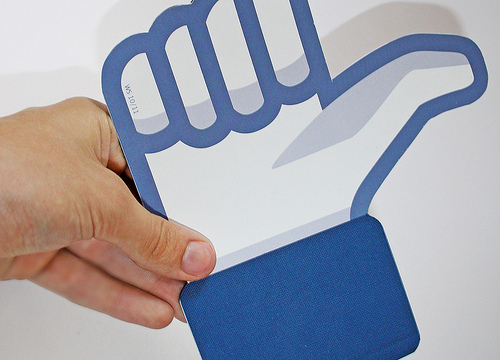It’s not the proudest moment in the life of any marketer or brand when they have to start buying likes on Facebook or followers on Twitter in order to make their page more appealing. However, it is not uncommon for this to happen each day, making for a sort of unfair advantage for those who do the buying. Now, though, Facebook will be leveling the playing field, so that all the marketing that takes place on the network is absolutely genuine. Of course, they can only put so much effort into the removal of these phony Likes, which brings to question whether they will ever be able to stop the problem completely.
From their post on August 31st;
A Like that doesn’t come from someone truly interested in connecting with a Page benefits no one. Real identity, for both users and brands on Facebook, is important to not only Facebook’s mission of helping the world share, but also the need for people and customers to authentically connect to the Pages they care about. When a Page and fan connect on Facebook, we want to ensure that connection involves a real person interested in hearing from a specific Page and engaging with that brand’s content. As such, we have recently increased our automated efforts to remove Likes on Pages that may have been gained by means that violate our Facebook Terms.
It is a bit strange that something has not already been done about the issue in the past. These fake Likes have been around since the beginning of Facebook marketing, and Facebook knew that just as well as anyone else did. They assure us in their blog that they have never permitted the use of these purchased Likes, but they have not paid much attention to them until now. It seems a bit strange that Facebook has decided to act now, rather than much earlier.
Regardless, Facebook is now doing something about it, and so the fall back of buying Facebook Likes is now gone. It is absolutely a good thing too, because as Facebook said, these Likes are not very beneficial to anyone. For most Facebook users, the number of Likes is not quite as important as who has Liked the page. People are interested in their friends’ genuine Likes, or at least those that are clearly real.
They end the post noting the way that Facebook should be used in the future;
Facebook was built on the principle of real identity and we want this same authenticity to extend to Pages. We undoubtedly expect that this will be a positive change for anyone using Facebook, and we look forward to helping even more people share and connect with the friends and brands they care about.
The post offers some advice to those who think their pages’ security may be compromised, telling them to visit a page that can help with hacked accounts. Also, they advise that marketers should “vet” businesses that offer assistance with Facebook marketing, to ensure that they are genuine, legal business.




